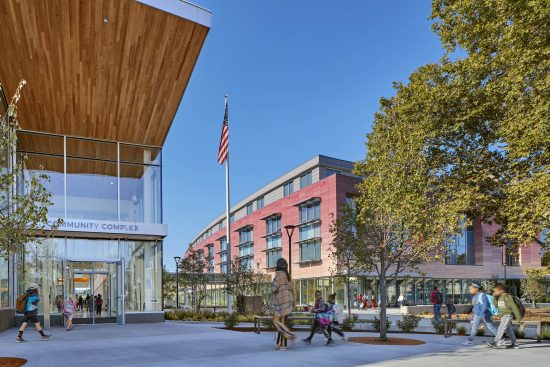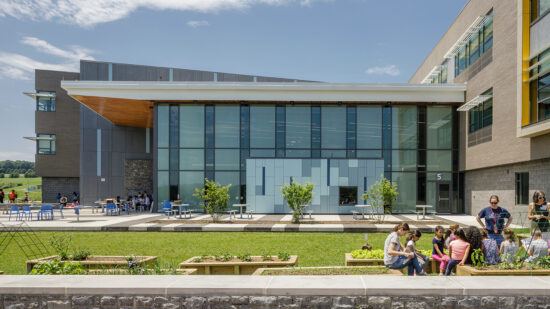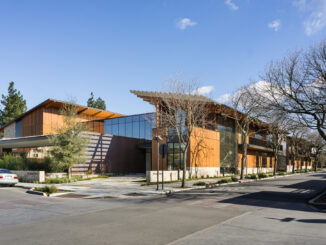
With buildings representing 39% of U.S. carbon emissions, the built environment is an essential part of the solution to curb the growing impacts of climate change. Leaders in building efficiency and decarbonization will gather Oct. 27-29 in New York City for the 2021 Getting to Zero Forum, the nation’s premier event dedicated to solutions that are urgently needed to reduce energy demand and carbon emissions in the built environment.
The forum convenes expert industry professionals, including state and local governments, architects, engineers, contractors, owner/developers, manufacturers, service providers, consultants and others, who are working to accelerate action that could keep global temperature rise below 1.5 degrees Celsius—the threshold needed to avoid the worst impacts of climate change. This year’s organizers, including New Buildings Institute (NBI), RMI and local host NYSERDA, are excited to bring together this cross-section of leaders in building decarbonization ahead of the United Nations Climate Change Conference of the Parties (COP26).

Cambridge, MA (Photo courtesy William Rawn Associates)
“New York is meeting the climate fight head on. The state provides a model of advanced policymaking and market-based strategies for economy-wide decarbonization that other states and countries should follow,” said Ralph DiNola, CEO of NBI. “While buildings are 39% of the problem, those who set standards, plan, design, construct and operate our built environment are responsible for 100% of the solution. We are excited to share some of the most effective solutions through our Getting to Zero efforts.”
According to a recent report from the Intergovernmental Panel on Climate Change (IPCC), unless there are immediate, rapid and large-scale reductions in greenhouse gas (GHG) emissions, limiting warming to 1.5 degrees Celsius will be beyond reach. While countries have made commitments to cut carbon and other GHG emissions, efforts are falling short. A recent analysis from the United Nations and Climate Action Tracker found that none of the world’s major economies has a climate that that would meet their Paris Agreement obligations.

Critical themes of policies to drive scale, establishing the business case and equitable transition will be covered in the programming, which will be accessible both in-person and virtually. High-profile plenary speakers will share insights into the work already being done to lower the carbon footprint of buildings, as well as the biggest opportunities for further emission reduction ahead. Speakers include:
Special Guest: Jennifer M. Granholm, Secretary of the U.S. Department of Energy. Secretary Granholm, just the second woman to lead the DOE, is overseeing the agency in pursuit of 2050 net zero carbon goals by advancing a clean energy transition with new cutting-edge technologies, millions of good-paying jobs and building an equitable future for all.
Gil Quiniones, President and CEO, New York Power Authority.
Doreen Harris, President and CEO of NYSERDA. Ms. Harris currently leads NYSERDA in efforts to advance innovative energy solutions to improve New York’s economy and environment. Previously at NYSERDA, she oversaw the nation-leading advancement of renewable resources under the Climate Act.
Under Mr. Quiniones’ leadership, NYPA is playing a key role in New York’s Green New Deal, the nation’s leading clean energy and jobs agenda. This landmark initiative places New York state on a path to economy-wide carbon neutrality.
Donny Simmons, President of Commercial HVAC Americas—which goes to market as Trane®— for Trane Technologies. Mr. Simmons oversees a broad portfolio of high efficiency, industry- leading HVAC systems, services, controls and energy reduction solutions to realize the company’s sustainability initiatives, including carbon neutral operations and other zero and net positive goals.
Jonathan Flaherty, Global Head, Sustainability and Building Technology Innovation, Tishman Speyer. Mr. Flaherty oversees sustainability, energy, telecom and smart building efforts at the global real estate and development firm Tishman Speyer. The company’s portfolio includes more than 213 million square feet of properties around the world valued at $115 billion.
Jacqueline Patterson, Founder and Executive Director, Chisholm Legacy Project. Co-founder of Women of Color United, Ms. Patterson has worked as a researcher, program manager, coordinator, advocate and activist working on women‘s rights, violence against women, HIV and AIDS, racial justice, economic justice, and environmental and climate justice.
Sadie McKeown, Executive Vice President and Head of Construction Lending and Initiatives at The Community Preservation Corporation (CPC). Ms. McKeown leads CPC’s construction lending activities, including the ACCESS fund to strengthen and support BIPOC developers and real estate entrepreneurs, and CPC’s partnership with New York state in providing COVID relief funding to small multifamily building owners.
Attend the Getting to Zero Forum
The Getting to Zero Forum will take place October 27-29 at the New York Marriott Marquis. For those attending in person, the event offers workshops and tours of some of New York City’s most inspiring projects and advanced building practices. The conference includes sessions on timely topics such as embodied carbon, clean energy technologies, climate-aligned building codes, building materials, financing, workforce development and more.
Both virtual and in-person attendees can learn more and register for the Getting to Zero Forum at: www.gettingtozeroforum.org. Press passes are available. Attendees will be required to show proof of vaccination and wear a mask.
About New Buildings Institute (NBI)
New Buildings Institute, based in Portland, Ore., is pushing for better performance in buildings. NBI works collaboratively with industry market players—governments, utilities, energy efficiency advocates and building professionals—to promote net zero design practices, innovative technologies, public policies and programs that improve energy efficiency.
About RMI
Since 1982, RMI has advanced market-based solutions that transform global energy use to create a clean, prosperous and secure future. An independent, nonprofit think-and-do tank, RMI engages with businesses, communities and institutions to accelerate and scale replicable solutions that drive the cost-effective shift from fossil fuels to efficiency and renewables. Learn
About NSYERDA
NYSERDA, a public benefit corporation, offers objective information and analysis, innovative programs, technical expertise, and funding to help New Yorkers increase energy efficiency, save money, use renewable energy and reduce reliance on fossil fuels. NYSERDA professionals work to protect the environment and create clean-energy jobs.




Be the first to comment